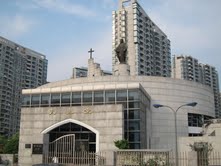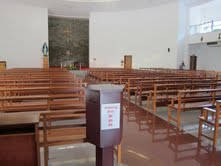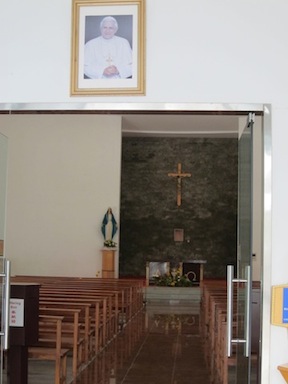David Aikman, a former Beijing bureau chief for Time Magazine, had an article last week on the Wall Street Journal. Titled “Beijing’s Theology of Repression,” the opinion piece describes a “crack down” of house churches in China by the government.
The crack down cites one church’s closure: Beijing Shouwang Church, which we previously covered.
‘For we must consider that we shall be as a city upon a hill,” Puritan John Winthrop famously preached to fellow immigrants to America aboard the Arbella in 1630. At least two American presidents in the 20th century, John Kennedy and Ronald Reagan, have quoted him, and his words have resonated for many Americans ever since, reminding them of their spiritual obligations, not just to each other, but to the whole world.
If Winthrop were alive today, he would undoubtedly be heartened to see his words quoted in the quarterly magazine of Shouwang Church, one of Beijing’s largest unsanctioned “house” churches (shouwang means “keeping watch” in Chinese). He would share, too, the anguish of the church members at their continued intimidation by the authorities. Since early April, police have prevented church members from gathering for normal Sunday worship services—albeit at an outdoor plaza and not a church building. Hundreds have been detained for short periods and the entire church leadership has been under house arrest since April.
It also refers to the failure of the Three-Self Patriotic Movement to attend an international conference last year.
Evangelical churches around the world, of course, have always stressed the need for Christians to share their faith. The TSPM, however, forbids its members to evangelize. Last autumn, that ban meant the the TSPM was not able to attend the Lausanne Conference on World Evangelism because its representatives could not sign the mandatory Lausanne pledge to promote evangelism. It then stood back as authorities blocked some 200 invited Chinese house-church representatives who were willing to sign the pledge from leaving China.
Unfortunately, these incidents are nothing new. Beijing has always cracked down on house churches whenever it sees fit. Not to mention the trying relationship that has always existed between China’s official churches and their international counterparts.
There is no direct evidence indicating that the Chinese government is cracking down on house churches today any more aggressively than a year or two ago. It of course does not mean that the situation is less deserving of attention – I am merely pointing out the plain fact that it has always been so.
I disagree, however, with Mr. Aikman’s statement that the TSPM members are not allowed to evangelize. Just yesterday, I met a women who’s Christian (her husband also). She goes to a church that belongs to the TSPM in Beijing. When asked how did she initially get to know and to believe in Christ, she replied: “One of my colleague passed on the Good News to me.” When I talked to church members at the Beijing Haidian Christian Church last year, almost all were evangelized by a friend or a family member.
Moreover, read one of the most prominent Christians in China, real estate tycoon Pan Shiyi’s microblog (or China’s twitter) this past Sunday:
"赞美归于上帝!"早上醒来的第一句话。明白这句话的人有福了,听到这句话的人有福了。
7月10日 07:48 来自iPad客户端
转发(1354) | 收藏 | 评论(1011)
English translation:
“Glory to the Lord!” The first sentence this morning after my wake. Those who understand this sentence has the good fortune ahead of them. Those who heard this sentence will have the good fortune in the future.
Sent at 7:48 in the morning via iPad, this tweet has 1011 comments and were forwarded 1354 times! All I want to say is: By our empirical experience, evangelicalism inside the TSPM is well and alive.




Recent Comments